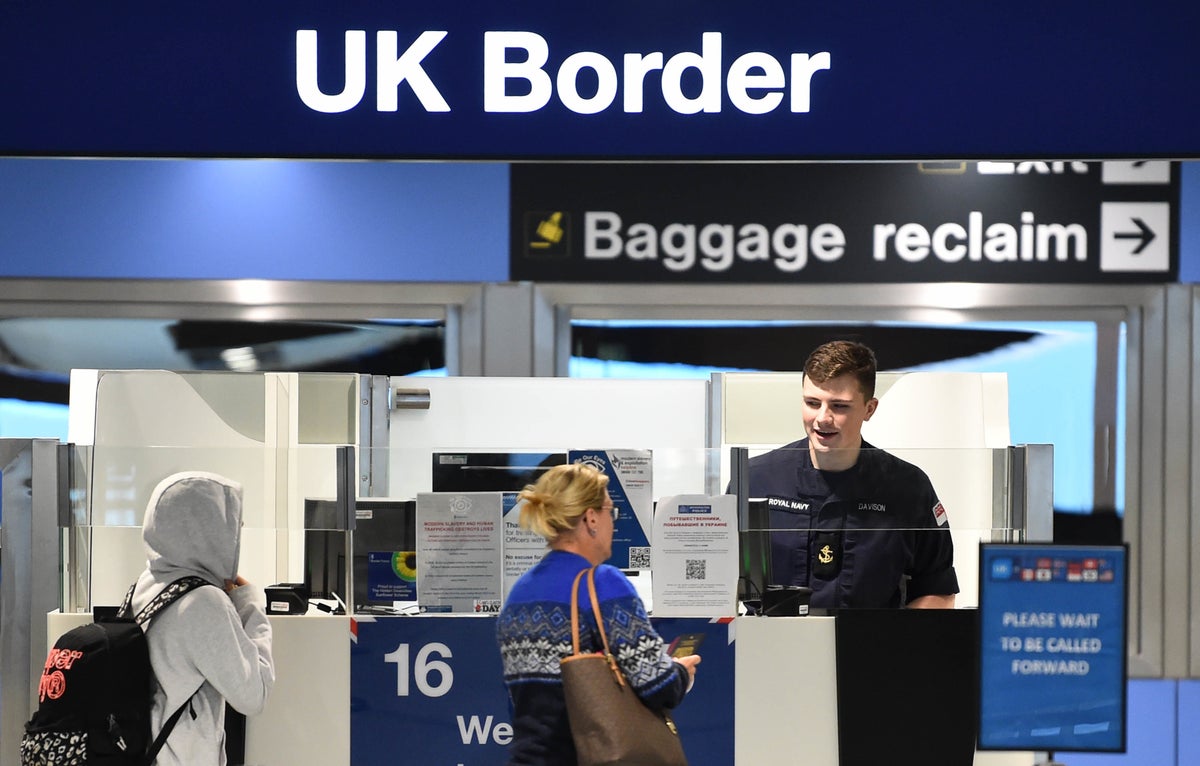
Prime Minister Rishi Sunak considered banning thousands of key workers from joining a union, reports suggest.
Leaked government emails have allegedly laid bare a series of plans – including those that would bar Border Force (BF) staff from trade union membership – described by a union chief as the “biggest attack on workers’ rights and freedoms” for generations.
Mr Sunak had reportedly contemplated including the proposal in the government’s anti-strike legislation announced last week, and union bosses fear the harsh measure could have also been considered for other sectors.
Mark Serwotka, general secretary of the Public and Commercial Services Union, told The Observer: “These emails reveal that while the government publicly is saying: ‘We want to resolve the dispute’, behind the scenes they were preparing the biggest attacks on fundamental rights and freedoms that we would have seen in this country for generations.”
The emails, which were distributed to senior civil servants last month, constituted several alternate models for the prime minister to review as possible frameworks for the anti-strike legislation.
The first of the three plans, drawn up by officials and lawyers in the department for business, energy and industrial strategy (BEIS), was reportedly described as a “police service ban on striking”.
It advocated banning BF staff from joining a trade union, with striking or “inciting disaffection” becoming a criminal offence, the leaked emails, seen by the newspaper, reportedly say.
The second model allegedly posed a “prison service-style ban on striking” to replicate rules for prison officers who are also banned from taking industrial action.
Possible concessions were suggested, such as a new independent pay review body.
The final option, which the government chose to adopt last Thursday, enforces “minimum service levels” in public sectors, with employers able to sue unions and sack staff if minimum standards are not met.
The three options reportedly were put to No 10, along with the caveat: “We [senior BEIS officials] do not yet have a firm view on the preferred model from PM”.
The first and most extreme option was turned down only because it might “be difficult to justify” in light of the European Convention on Human Rights, which guarantees the right for UK workers to join a union, the emails allegedly show.
As such, civil servants said the third model was their “preferred option”.
The new anti-strike legislation impacts six sectors including border security, health, education, fire, ambulance, rail, and nuclear commissioning, leading union bosses to suggest that ministers would have attempted to ban union membership for workers from all such areas.
“We know that the legislation covers health service, teachers and transport, and one can assume they would have considered this option not just for the border force but everywhere,” Mr Serwotka told the newspaper.
“That would affect over a million people, which is an extraordinary step in any democratic society … They’re trying to potentially take what are already the most restrictive anti-union laws in Europe and take them to levels I don’t think anybody thought they would seriously contemplate.”
The Observer reports that the emails revealed civil servants’ concern that even the minimum service was not immune to legal challenges.
A government spokesperson said: “As announced this week, we are introducing new laws to ensure a minimum level of safety in some of our most crucial sectors when industrial action takes place.”







